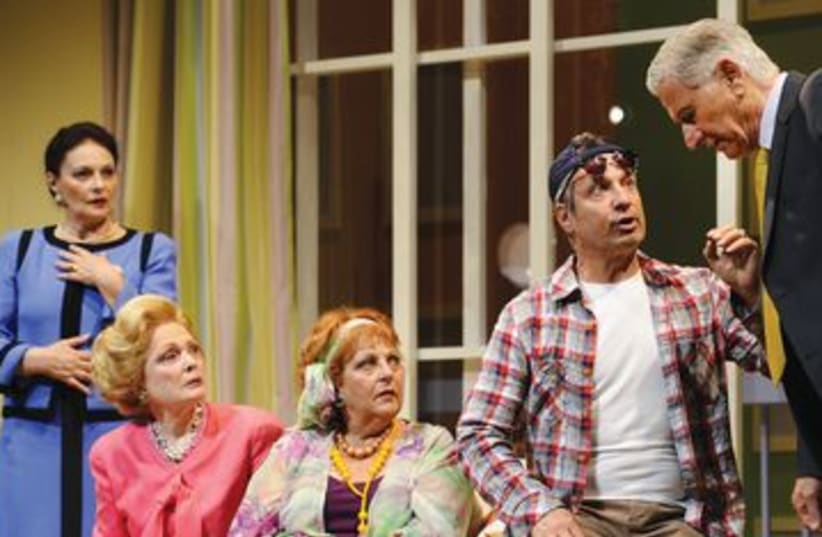Translated by Eli Bijaoui
Directed by Alon Ophir
Cameri Theater, Tel Aviv
February 24Neil Simon’s play The Prisoner of Second Avenue at the Cameri has become the Shmuel Viloszny Comedy Show, and the audience laps him up. Poor Prisoner just gets in the way as Viloszny playing Mel – the prisoner of the title – plentifully ad libs, mugs, does a spastic puppet à la John Cleese and romps through the show in such way-over-the-top gear that neither his character nor the play has anywhere to go.It’s exhausting. It also gets tedious after about 10 minutes, which is a shame because Sarit Vino-Elad as Mel’s long-suffering wife, Edna, gives this Prisoner the little shape it has. She really does run the gamut, bless her, from patience to a wonderful moment of hysteria when it all becomes Too Much.Prisoner is one of Simon’s blacker comedies whose theme is cumulative dysfunction – personal, societal and economic. You might say that its message is even more acute than at its premiere in 1971. Middle-class couple Mel and Edna Edison live on the 14th floor of an apartment house in the heart of Manhattan.The city, the heat, the neighbors, his job – in short, everything has been getting to Mel. His stress level has reached critical mass and tips over into clinical depression when the apartment is burgled and he loses his job. Things go from bad to worse; but Prisoner is a comedy, so hope is mandatory.What is Grant Wood’s iconic portrait of faux Americana, American Gothic, doing as the centerpiece of Talia Ottolenghi’s bland living room/kitchen set? Is it supposed to represent the Edisons’ taste in art? Is it a directorial comment? Either way, it doesn’t belong because the production is not structured to encompass it.Oren Dar’s costuming comes nicely into its own on Tracy Abramovici, Dina Doron, Dalia Friedland and Nissim Zohar, cameoing, most brightly as Mel’s sisters and brother who have decided to help, as long as it costs them nothing, so to speak.Viloszny, in the moving scene between Mel and his brother, shows for a few moments what he might have done with the role.Although he has managed perfectly well with the other actors, director Alon Ophir seems to have exerted little control over his justly famous star. It is not to his credit.
